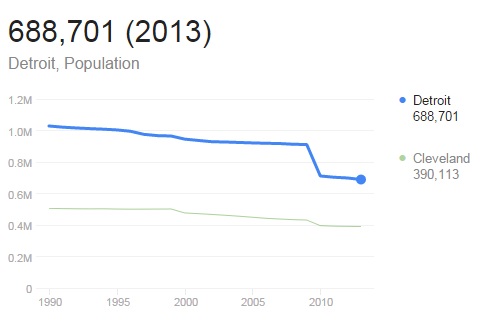
- Want to be Successful? Learn to Like Other People
One of the biggest opportunities for growth at work comes from the way you solicit feedback and what you do with it afterward. Research demonstrates that while employees who speak up tend to improve how well teams function, many tend to be afraid to do so, worrying that their input won’t be well-received. Simply assuming the best in others can lay the foundation for managers and their team members alike to learn and improve without wounding egos.
- Why So Many Americans Are Saying Goodbye to Cities
America’s largest cities have so much going for them. They are rich, productive, and pulsating with culture and life. So what happened to the great urban revival? “America’s cities have domestic net out-migration because they’re not affordable,” said E. J. McMahon, the founder of the Empire Center for Public Policy. “For many, New York City is a temporary portal. The Baby Boomers retire to Florida. The middle-class Millennials move to Long Island for a house. The woman from Slovakia comes to Queens, lives in her second-cousin’s basement, gets her feet on the ground, and gets a better apartment in West Orange, New Jersey.”
- With robots on the job, it won’t be IT as usual
“It’s very much a different mindset than traditional IT,” said Mike Gennert, a professor and director of the Robotics Engineering Program at Worcester Polytechnic Institute, in Worcester, Mass. “IT managers worry about how they manage information, how it’s used, how it’s stored and secured. But none of that has the ability to directly affect the physical world. Robots affect the real world. That brings issues IT managers have not had to confront.”
For instance, It’s bad enough if a company computer is hacked and it becomes part of a zombie botnet. But what if someone hijacks a company robot and makes it do things, harmful things, in the real world?
- Does Silicon Valley Have a Contract-Worker Problem?
But increasingly, critics argue that the freelance model is being abused, with workers being treated as if they were on payroll without getting any of the benefits afforded to payrolled employees. Some Silicon Valley insiders are beginning to worry that start-ups’ overreliance on contract workers could come back to haunt them if they run afoul of longstanding labor rules. If that happens, these high-flying disruptors could be facing serious disruption themselves.
http://nymag.com/daily/intelligencer/2014/09/silicon-valleys-contract-worker-problem.html
Also:Then, there is the problem of massive labor oversupply. Unlike for Uber or TaskRabbit, which operate in a given city with a constrained supply of workers, the pool of labor for such digital work is for all intents and purposes infinite. One contingent-work platform reported having nine times as many workers as necessary. A Filipino virtual assistant described the inevitable result: “I first set [my hourly rate] at $8, because that’s what my previous client was paying me,” the assistant told the researchers. “But I found it quite difficult to find jobs. So I set it at $4. And I think I even set it at $3.50 currently. So, I mean, if you don’t get a lot of invitations, you don’t have any other choice but to lower down your expectations, I guess.”
https://www.theatlantic.com/business/archive/2017/04/gig-economy-global/522954/?utm_source=feed
- What “Personal Space” Means to the Rest of World
Countries that greatly value their personal space include Romania, Hungary, Saudi Arabia, Turkey, and Uganda. Participants from all five of those places would prefer it if you stood more than 120 cm away, or roughly four feet. But participants from Argentina, Peru, Bulgaria, Ukraine, and Austria don’t mind if you chill about 90 cm away, or less than three feet. The U.S. isn’t too far off from that, expecting strangers to keep a cool 95 cm distance between them.
That said, nobody likes any stranger standing two and half feet or less away. So stop it. Unless you’re on a cramped metro train or something and can’t help it. It’s also important to note that women and elderly participants of all cultures required more space.
http://lifehacker.com/what-personal-space-means-to-the-rest-of-world-1794130182
Certainly not the first time a reporter has addressed this topic, but always good to have a refresher.
Photo: Nina Strehl




